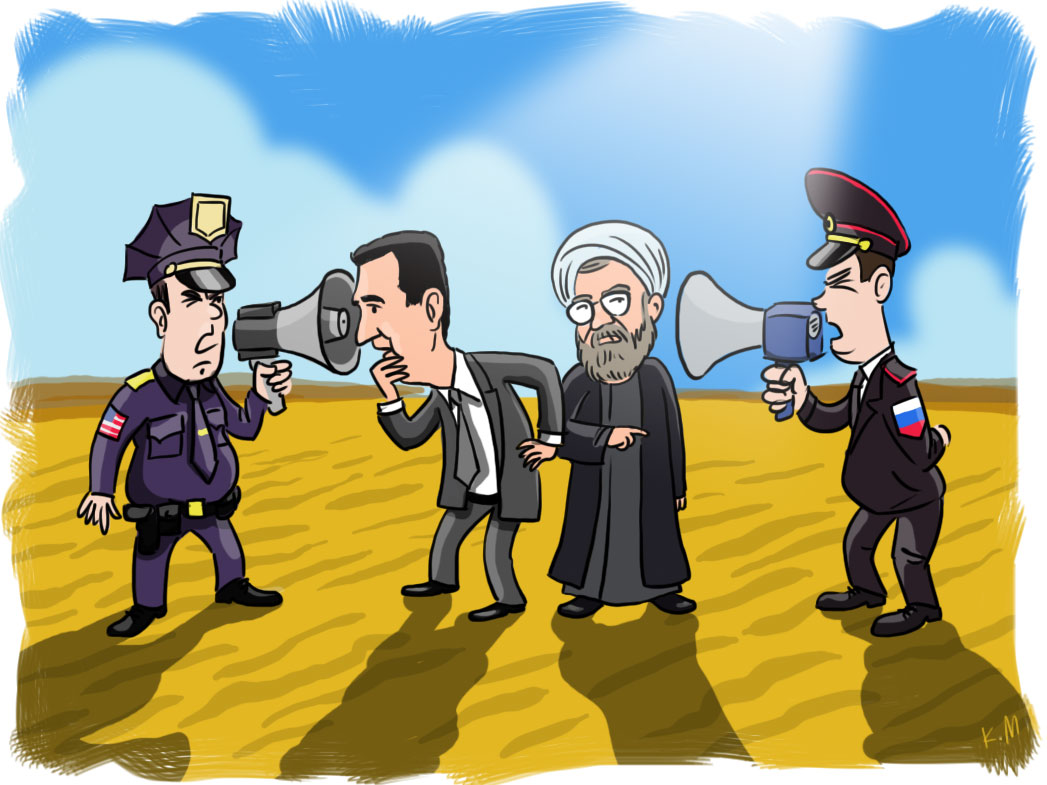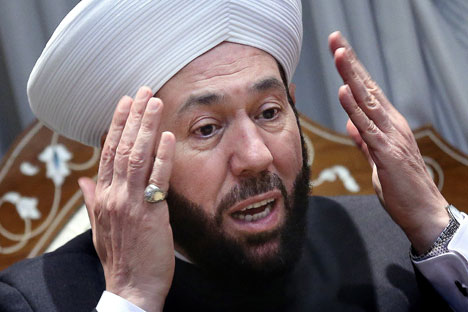Acting world policeman

Drawing by Konstantin Maler
The Russian campaign in Syria has become another milestone in the continuously changing realm of world politics and its significance reflects not only on Moscow, Damascus and the Middle East, but also on the development of general processes.
Moscow has been encroaching on a right for the last 25 years (since the moment of Desert Storm), which has been monopolized by the U.S.: the right to use force to create international order. In other words, the function of being "the world policeman."
The unipolar world meant that wars "for the sake of peace," that is to say those that are not related to the achievement of one's own concrete and clear aims, are waged only by the U.S. and its allies. By starting its military operations in Syria Moscow changed the balance of power and the prospects of solving what is currently the most crucial international conflict.
Another important consideration is that the conflict in Syria is likely to be ending the era of the "humanitarian-ideological" approach to regulating local crises. Until recently the most significant element of discussions concerning civil wars were accusations of crimes against one's people, violent suppressions of protests and so on. A leader tainted by such behavior was placed into the category of those that have "lost their legitimacy" and consequently, holding dialogue with such a leader became unnecessary and inadmissible. Such an approach reflected the general changes in the interpretation of principles of international conduct that arose after the Cold War. This led to the expansion of the duties of the "world policeman." Besides punishing the aggressor (as in Iraq in 1991), the job also required taking revenge on regimes (even changing them if necessary) that violated human rights.
The attitude towards Syrian President Bashar al-Assad evolved according to the same model. Two years ago the Arab League and a series of European governments recognized the Syrian opposition as the legitimate representative of the people, thus removing that status from the official government. Now everything has changed: the humanitarian element has given way to a realistic approach - pressuring the "criminal government" has become costly. Or even impossible.
The meeting in Vienna on October 30 was the second meeting this year (after the talks on Iran's nuclear program) with an open ending. In other words it was the second time when a solution’s format would be determined over the course of discussions and not prescribed beforehand. No one knows now what kind of political arrangement there will be in Syria after the war.
Obviously, the changes occurred not just due to Russia’s efforts, but mainly because the previous approaches had reached a dead end. However, the next question is: what to do with these new conditions in the world?
The most rational reply would be to transform the current breakthrough into a "top league" and drastically increase Russia's weight in the upcoming bargain for the future order in Syria. But this means that Moscow must at some point distance itself from supporting Assad only and occupy the niche of an influential but impartial arbiter. Such a scenario would obviously not meet Assad or Iran's approval. For Tehran it is vitally important to preserve the current regime since any change would be fatal to Iranian domination in Syria. Iran cannot "give away" this country because of the hard clinch with Saudi Arabia, which in turn will do anything to prevent Syria from being Iran's outpost in the Arab world.
Russia must walk a fine line in order to solve this threefold problem. It has to:
- guarantee its own geopolitical presence in Syria (in simpler terms, its military base) in the future, regardless of the government in Damascus
- not undermine the evolving relations being developed with Iran, a very important regional partner in the future
- not morph into a great power that serves Iran's regional interests at the same level that the U.S., for example, has served Saudi Arabia's interests for quite a while
Be that as it may, it seems that Russia's military operation has already produced benefits. Now it either needs an impressive military victory, which currently does not appear probable due to the weakness of the ground troops, or a subtle political process and a complicated deal on Syria.
If we look at the situation again from the international perspective, it is difficult to think that the Russian government intends to replace the U.S. and assume the full role and mission of the world policeman. But if such an idea does arise, it would be wise to consider the U.S.'s inevitable reply, for which it is clearly still too early to dismiss.
First published in Russian in Gazeta.ru.
The author is chairman of the Presidium of the Council on Foreign and Defence Policy.
The opinion of the writer may not necessarily reflect the position of RBTH or its staff.
Subscribe and get RBTH best stories every Wednesday
All rights reserved by Rossiyskaya Gazeta.
Subscribe
to our newsletter!
Get the week's best stories straight to your inbox
